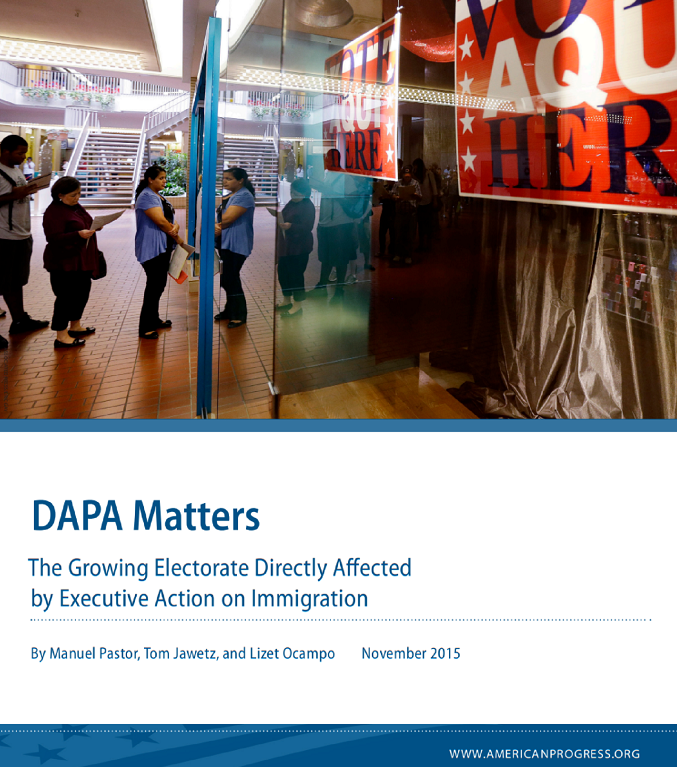
November 19, 2015
By Manuel Pastor from the USC Center for the Study of Immigrant Integration (CSII) and Tom Jawetz and Lizet Ocampo from the Center for American Progress (CAP)
Please note: reports dated earlier than June 2020 were published under our previous names: the USC Program for Environmental and Regional Equity (PERE) or the USC Center for the Study of Immigrant Integration (CSII).
On the one year anniversary of President Obama’s executive action announcement, the Center for American Progress and CSII release a new report calculating how many potential votes could be on the line for the country’s political leaders when it comes to their stance on Deferred Action for Parents of Americans (DAPA).
CSII provides new state-by-state projections of how many U.S. citizens (of voting age) live with unauthorized family members who would be eligible for DAPA under the president’s plan—we call them “DAPA-affected voters”.
The report demonstrates how the growing electoral impact of DAPA-affected voters could play a decisive role in key battleground states in the 2016 elections and beyond.
Key findings include:
- An estimated 6.3 million U.S. citizens live in the same household as a DAPA-eligible relative.
- More than 5.3 million of these citizen family members are the children of those eligible for DAPA, and about 1 million are spouses and other relatives.
- By 2016, 1.5 million of these 6.3 million citizen relatives will be eligible voters;
- And by 2020, that figure will rise to 2.25 million as children and family members reach voting age.



